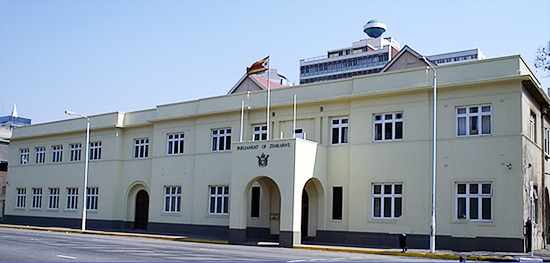By Nhlanhla Mlilo
In Zimbabwe, the women’s proportional representation policy, in its current format and nature has failed to politically empower women.
Researches have indicated that there is no direct relationship between increased women participation in politics and democracy, others have also argued further that there is no direct correlation between women’s participation in politics and economic development, at least at a macro level.
Research, however, has proven that increased women’s participation at a micro-level leads to sustained socio-economic development. Thus we can theorise that increased women’s participation if promoted may accelerate development.
The Zimbabwe constitutional women’s quota system was designed to empower women through increasing the number of women in political positions by reserving seats specifically to be occupied by women. This policy has managed to numerically increase women’s representation in parliament from 18% in 2008 to an average of 35% in the 2013/2018 electoral cycles. As an empowerment tool, the quota system has to be looked at and evaluated on various levels apart from just the numerical representativeness in parliament.
The evidence is abundant that in Zimbabwe this guided democracy approach has not yielded much fruit apart from the increase in numerical representation of women in political positions (particularly the National Assembly and Senate). The proportional representation system has been used by elite women in various political parties to retain power and parliamentary positions. Of the female MPs who were in parliament in 2013 on the proportional representation ticket, 75% of them returned to parliament in 2018 on the same ticket.
In real terms then, it can be concluded that the quota system has not increased the number of women entering and or participating in politics. The quota system benefited women who were already in politics and strategically positioned in parties, thus only cemented their hold on power through extending their stay in office.
Scholars and even some parliamentarians agree that women who have been privileged to join politics through quotas have not been afforded equal respect as their other counterparts who are in parliament through the ballot. Proportional representative parliamentarians are viewed as being in the house for tokenism as a favour and not through merit. While the quota system was introduced in 2013 and led to an increase in women in parliament and senate, there however exists no direct relationship between quota system and gender equality in terms of allocation, access and control of political resources.
Participation by the proportional representation parliamentarians and Senators in deliberation in their respective houses is said to be very low and their visibility and participation is close to non-existent at constituency level. On the 12th of March 2019 when the motion for the extension of the proportional representation policy was being debated, only five female legislators excluding the Deputy Speaker officially spoke (debating, raising a point of order, a point of privilege, seconding motions or even seeking clarifications) in the National Assembly compared to 20 male legislators.
The constitutional quota system is the panacea to increased women’s involvement in politics. The quota system in the Zimbabwean Constitution has a sunset clause, with the 2018 election cycle being the last cycle for the proportional representation clause. The Parliament is currently seized with deliberations aimed at extending the quota system. The quota system in its current format even if extended will not contribute to increasing meaningful involvement and participation of women in politics.
An alternative approach, still upholding the principle of allocating a women’s quota may be needed to create a rotational system of reserved women’s seats from amongst the total number of existent constituencies, senatorial and local authorities. This approach will mean Zimbabwe completely abandons the additional non-constituency quota seats.
Through the aabove-proposed approach for every electoral cycle, a minimum of 30% of the constituencies (parliamentary, senatorial and or local authority seats) will be reserved for women. ZEC as the independent electoral management body must be mandated and capacitated to rotationally allocate proportional quota seats every electoral cycle for at least the next three electoral cycles.
This approach will in one sweeping move address the following issues noted as weaknesses of the current quota system:
- Lead to a leaner parliament and senate in line with the austerity for prosperity policy;
- All parliamentarians/ senators will be elected and representing a constituency hence of equal footing in the respective houses;
- Women benefiting from this quota system shall have more and better direct contact with their constituencies to build their political capital;
- This approach will afford more women (numerically) from across the country (geographically) an equal opportunity to enter and participate in politics.
Nhlanhla Mlilo is the Regional Coordinator for NANGO Western Region. He can be contacted on +263-719288244/773288244
Skype: nhlanhlamlilo

